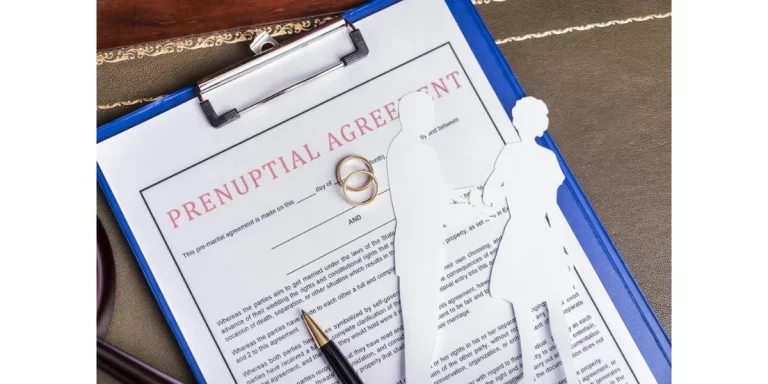Full disclosure of assets in a property settlement in Australia means that each party must legally disclose all assets, liabilities, and financial resources they own or control. This includes assets held in their name, jointly with others, or through trusts or companies.
This disclosure process ensures that each party understands the total asset pool available for distribution upon separation or divorce. This includes property, savings, shares, superannuation, business interests, and debts.
Sometimes, individuals must disclose information regarding their financial resources, such as interest in an estate, expectation of a significant financial gift, or capacity to earn income.
Failure to provide complete disclosure may lead to court-imposed penalties, and any property settlements reached can be set aside if it is found that a party did not disclose all relevant information.
Consequences
Hiding assets in a divorce in property settlement proceedings is taken very seriously.
If discovered, it can have significant legal and financial consequences.
Here are some of the potential outcomes:
- Re-evaluation of Property Settlement: If it’s discovered that a party failed to disclose an asset or provided false information, the court can re-evaluate the property settlement. This could lead to a less favourable distribution for the party found to be hiding assets.
- Penalties and Fines: The court may impose penalties, fines, or even a prison sentence for strict non-disclosure or misleading information cases.
- Contempt of Court: Concealing assets is considered contempt of court. This can result in serious penalties, including imprisonment in some cases.
- Reversal of the transaction: Under Section 106B of the Family Law Act 1975, the court has the power to set aside transactions that were entered into to defeat existing or anticipated orders regarding property settlement. This could mean reversing the transfer or disposal of assets.
- Adjustment of property interests: The court can ‘add back’ the value of the disposed assets into the asset pool available for distribution. This effectively means treating the assets as if they still existed when dividing property.
- Adverse Inferences: The court may draw adverse inferences about a party’s credibility if they have acted deceitfully, which could influence the final settlement decision.
- Cost Orders: The court may order the party who disposed of assets to pay the other party’s legal costs, mainly if this action has led to unnecessary litigation.

Ex Hiding Assets in a Divorce
If you suspect that your ex-spouse is hiding assets in a divorce during the property settlement process, taking immediate action is essential to ensure you receive a fair settlement. Here’s what you can do:
- Gather Evidence: Document any evidence suggesting your ex-spouse is hiding assets. This could include bank statements, tax returns, property deeds, business records, or unexplained lifestyle changes.
- Hire a Lawyer: If you don’t already have one, hire a property settlement lawyer to guide you through the legal process. They can help you understand your rights and develop a strategy to reveal hidden assets.
- Forensic Accountant: Your lawyer may suggest hiring a forensic accountant if the situation involves complex finances. These professionals can investigate financial records to discover discrepancies and potentially hidden assets.
- Court Intervention: Your lawyer can request that the court order your ex-spouse to disclose all assets. The court may also require each party to swear an oath about the accuracy of their financial disclosure.
- Public Examiner: In certain situations, the court may allow a public examination of a party or related individuals to question them about their financial circumstances.
- Subpoenas: Your lawyer can issue subpoenas to banks, businesses, or third parties demanding financial records linked to your ex-spouse.
Strategies
While hiding assets in a divorce is illegal and unethical, unfortunately, it happens in some divorce and property settlement cases. Here are some common strategies individuals might use to hide assets:
- Transferring Assets: Some people may attempt to transfer assets to a third party, such as a friend or family member, to retrieve them after the divorce proceedings.
- Undervaluing Assets: An individual may intentionally provide a lower value than the actual value for certain assets, such as real estate or businesses, to lessen their apparent net worth.
- Creating Fictitious Debt: Some people may make fraudulent loans or expenses to give the illusion of higher debt or financial obligations.
- Income Deflection: This involves diverting income to other accounts or delaying bonuses, promotions, or new business contracts until after the property settlement.
- Overpaying Taxes: By overpaying the tax office, they create a tax refund that will occur after the divorce, essentially hiding money from the government.
- Purchasing Items of High Value: Buying expensive items like artwork, jewellery, or antiques can be a way to convert cash into something less noticeable that can be sold later.
- Cryptocurrencies: With the rise of digital assets, hiding money in cryptocurrencies like Bitcoin is a more recent tactic due to its perceived anonymity.
- Offshore Accounts: Though less common and more complex, some people might use offshore accounts in foreign countries to hide large sums of money.
Penalties
Hiding assets during a divorce is taken very seriously by the Family Court and Federal Circuit Court.
The courts require full and frank disclosure of all assets and financial resources from both parties in a divorce proceeding.
If it’s discovered that a party has deliberately hidden assets, several penalties can be applied, reflecting the severity of the breach of trust and the legal obligation to disclose.
The consequences for concealing assets can include:
- Revised Settlements: The court may order a redistribution of the assets in favor of the non-offending party once the hidden assets are discovered. This can result in a significantly less favorable outcome for the party who attempted to hide assets.
- Contempt of Court: Hiding assets can be considered contempt of court, leading to penalties such as fines or even imprisonment, depending on the severity of the offense.
- Cost Orders: The court may order the offending party to pay the legal costs of the other party, which can be substantial.
- Criminal Charges: In extreme cases, where the behavior constitutes fraud or another criminal act, the offending party could face criminal charges.
The Family Law Act emphasizes the importance of honesty and transparency in proceedings, and the courts have broad discretion to enforce this principle.
Given the serious potential penalties, it’s crucial for individuals going through a divorce to adhere strictly to their legal obligations and to seek appropriate legal advice.
Is Your Ex-Spouse Hiding Assets in a Divorce?
Don’t be a victim of unfair asset concealment. At Justice Family Lawyers, we specialise in unearthing hidden assets and ensuring a fair property settlement.
Our legal team uses comprehensive strategies to safeguard your financial interests. Don’t let what’s rightfully yours slip away. Act now! Contact Justice Family Lawyers for a consultation today.
Principal of Justice Family Lawyers, Hayder specialises in complex parenting and property family law matters. He is based in Sydney and holds a Bachelor of Law and Bachelor of Communications from UTS.





